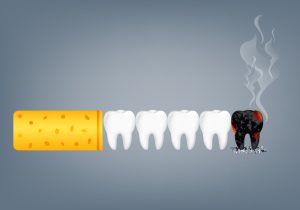Parents naturally want their children to have a smile that is healthy and beautiful. However, certain behaviors in oral habits (e.g., thumb sucking and pacifier use) should become a concern as the child grows. They are all normal and comforting for infants and toddlers, but the longer the child persists in using these habits, the higher the chances the habits are going to have some effect on their dental development. If you are a parent that is worried about your child’s oral health, it is a good idea to visit your trusted dentist in Calgary to help you understand when you should intervene.
Why Children Suck Their Thumbs or Use Pacifiers
Sucking on one’s thumb and/or sucking on a pacifier are both natural behaviors used to self-soothe. Many babies and toddlers find comfort and pleasure in these behaviors because it is similar to sucking when nursing. Sucking on a thumb/pacifier may help children:
- Feel safe and secure during stressful events
- Go to sleep with less struggle
- Sooth discomfort from teething
In the early years, thumb sucking and/or pacifier use are not harmful. The potential concern appears when children start to use these habits as primary soothing techniques, especially when they have primary teeth coming in.
Thumb Sucking Dental Effects
Thumb sucking has a greater chance of resulting in dental issues than sucking on pacifiers due to the greater amount and consistency of pressure provided by the thumb. Possible dental changes associated with thumb sucking include:
- Protruded upper anterior teeth
- Malocclusion of the bite often referred to as an open bite or crossbite
- Speech problems secondary to improper tongue posture
- Narrowed palate
The severity of the effects are determined by intensity and frequency of the habit. For example, light and occasional sucking will not likely be as harmful as vigorous or extended sucking.
Pacifier Use and Teeth
Pacifiers tend to be less harmful than thumb sucking habits, particularly when orthodontic pacifiers are utilized, which are meant to promote normal patterns of oral development. Although a thumb–sucking habit may be difficult to break, extended pacifier use can have outcomes including:
- Incorrect tooth alignment
- Alterations in shape to the mouth
- Increased risk of ear infections in the middle ear
As children grow, it is best to gradually decrease pacifier use to help avoid dental issues later on.
When to Stop Pacifier and Thumb Sucking Habits
Professionals typically advise ending pacifier use and thumb-sucking by age 3 and certainly before the age of 6, when a child’s permanent teeth begin to erupt. The longer a child continues to pacifier or suck their thumb, the more likely they are to have crooked teeth and bite issues.
Ways to assist a child in stopping sucking their thumb or using a pacifier are:
- Comforting them in another way such as cuddling, or providing them with stuffed toys.
- Praising and reinforcing progress when the child does not engage in thumb-sucking or pacifier use.
- Restricting pacifiers to certain times of the day, such as naptime or bedtime.
- Seeking guidance from a dental clinic that is nearby for support and advice.
Dental Problems from Thumb Sucking
If not addressed in a timely manner, thumb sucking can lead to visible oral health issues that may require orthodontics later on, including:
- Open bite, where the upper and lower teeth do not occlude properly
- Speech impediments due to tongue positioning
- Protruded upper teeth leading to an improper bite
- Jaw development issues
Early intervention through the pediatric dentist is helpful to the child to find out before the above issues become worse.
When to Seek Professional Help
If your child is still using a pacifier or sucking their thumb after age 4 or 5, it may be helpful to contact a dentist. The dentist can provide advice on the following:
- Whether your child’s oral development is affected
- What to do to stop the habit
- How to avoid orthodontic problems later
Lastly, a dental clinic near you in Calgary can offer helpful recommendations and, when indicated, suggest appliances or other solutions to help ease your child away from the habit.
Conclusion
Childhood stages of thumb sucking and pacifiers are normal but it is also crucial to understand when to step in to the benefit of their oral health. You care about your child’s habit with his/her mouth, so don’t hesitate to make an appointment with Inglewood Family Dental today in order to get it managed by the professionals and live a life full of smiles.
📍 Find us easily on the Google map and plan your visit today!
FAQs
Is thumb sucking always a bad thing?
Not always. Light, occasional thumb sucking in toddlers does not usually cause any problems. Problems occur when it becomes a habit when the permanent teeth are emerging.
Are pacifiers better than thumb sucking?
Yes, pacifiers are usually less damaging because the pacifier is removable, while the thumb is always attached. Orthodontic pacifiers were made to lessen the potential damage to teeth.
At what age should my child stop using a pacifier?
Most experts recommend stopping by age 3 to avoid possible dental problems.
Can thumb sucking impact speech?
Yes, if thumb sucking is prolonged, the positioning of the tongue may be affected, resulting in a lisp or difficulty with other sounds in speech.
What can parents do to help their child stop?
Parents may wish to share praise with their child, substitute other comfort objects, and talk to a dental clinic if the behavior continues beyond preschool years.






